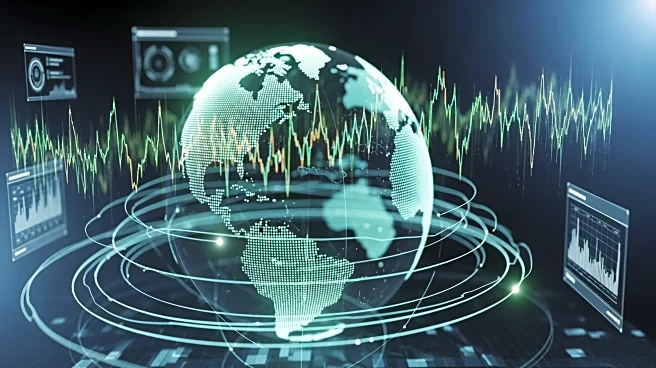What's Happening?
Prediction markets, which offer real-time data and financial incentives, are increasingly being scrutinized for their potential to manipulate public perception in elections. These markets, such as Polymarket and Kalshi, have shown betting odds that contradict
traditional polling, with Zohran Mamdani leading Andrew Cuomo despite polls suggesting otherwise. Concerns have been raised about the influence of wealthy individuals, or 'whales,' who can sway market outcomes by placing large bets. This has led to fears that the visibility of these odds, especially in high-traffic areas like Times Square, could impact voter behavior and election results.
Why It's Important?
The rise of prediction markets as a tool for gauging election outcomes presents both opportunities and challenges. While they offer a dynamic alternative to traditional polling, their susceptibility to manipulation by wealthy participants poses ethical concerns. This could potentially distort public perception and influence voter turnout, as individuals may be swayed by the perceived likelihood of a candidate's victory. The implications for democratic processes are significant, as these markets operate without the same ethical constraints as pollsters, potentially affecting the integrity of elections.
What's Next?
As prediction markets gain prominence, regulatory bodies like the CFTC may need to establish guidelines to prevent manipulation and ensure transparency. The Cuomo campaign and others affected by these markets may seek to educate voters on the limitations and potential biases of prediction market data. Additionally, the visibility of these markets in public spaces could prompt discussions on the ethical implications of broadcasting betting odds during election cycles.
Beyond the Headlines
The ethical dimensions of prediction markets extend beyond immediate election outcomes. They raise questions about the role of technology in shaping political narratives and the potential for financial interests to override democratic principles. Long-term, this could lead to a reevaluation of how election data is disseminated and the safeguards needed to protect electoral integrity.















